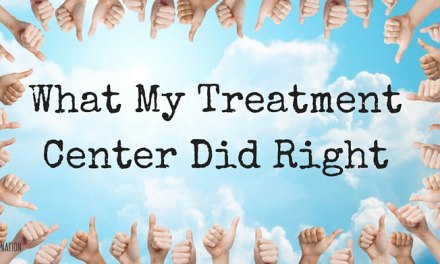I stumbled on an article on the Vox website about one writer’s experience with an app designed to help her deal with her drinking problem. What really got my attention, however, was something else: her deep feelings of resentment towards AA. For me at least, they drowned out much of the rest of her message.
Turns out these negative emotions were based on her experience as a youth with her own mother’s recovery in Alcoholics Anonymous.
For instance, this: “Before long, her [mother’s] world — and so my world — was ruled by AA chips and moralizing decrees related to powerlessness and disease. Addiction, she told me, ran in our blood; she was asked to repent and began to see the world as bifurcated into normies and drunks. Her abstinence seemed, to me but also often to her, like a kind of damnation. I had helped get her into treatment, so I wanted her to be well, but I also hated seeing her like that, living in shame.”
To me, it appears a bit overheated – someone’s recovery portrayed as a form of damnation? I’m sure that is how she felt about it at the time (and apparently hasn’t gotten over it since), but still, with all that anger in tow, it’s probably good she looked elsewhere for help when her turn came to deal with substance problems.
In an AA group, she’d probably sit there and fume. Although in my experience, she wouldn’t be the only one.
It did remind me of something I heard from another woman. She too had been instrumental in motivating her mother into treatment and wasn’t entirely pleased with the outcome, even though her parent stayed sober. In their case, mother and stepfather quit drinking at roughly the same time, both in AA. Their approach to recovery in the home, however, proved very different from one another.
Where Stepdad simply gave up drinking, went to his meetings, and practiced the Steps without sharing too much of the experience, “my mother preached at me,” she complained. “That bothered me. She was constantly applying all her new learning, psychology and stuff, to me. But I didn’t have a problem.”
At least not yet. Later on, the daughter did go through her own bout with amphetamines – ironic since that’s where Mom had gotten her start, during the diet pill craze of the 50’s and 60’s. Like so many women of that era, she moved on to alcohol.
I suspect the daughter was happy and relieved her Mom got sober, but now wanted to be left alone. Most adolescents do, after all. Nobody likes to be preached at, regardless of their age. Even if the person doing the preaching is probably right. Perhaps especially then.













